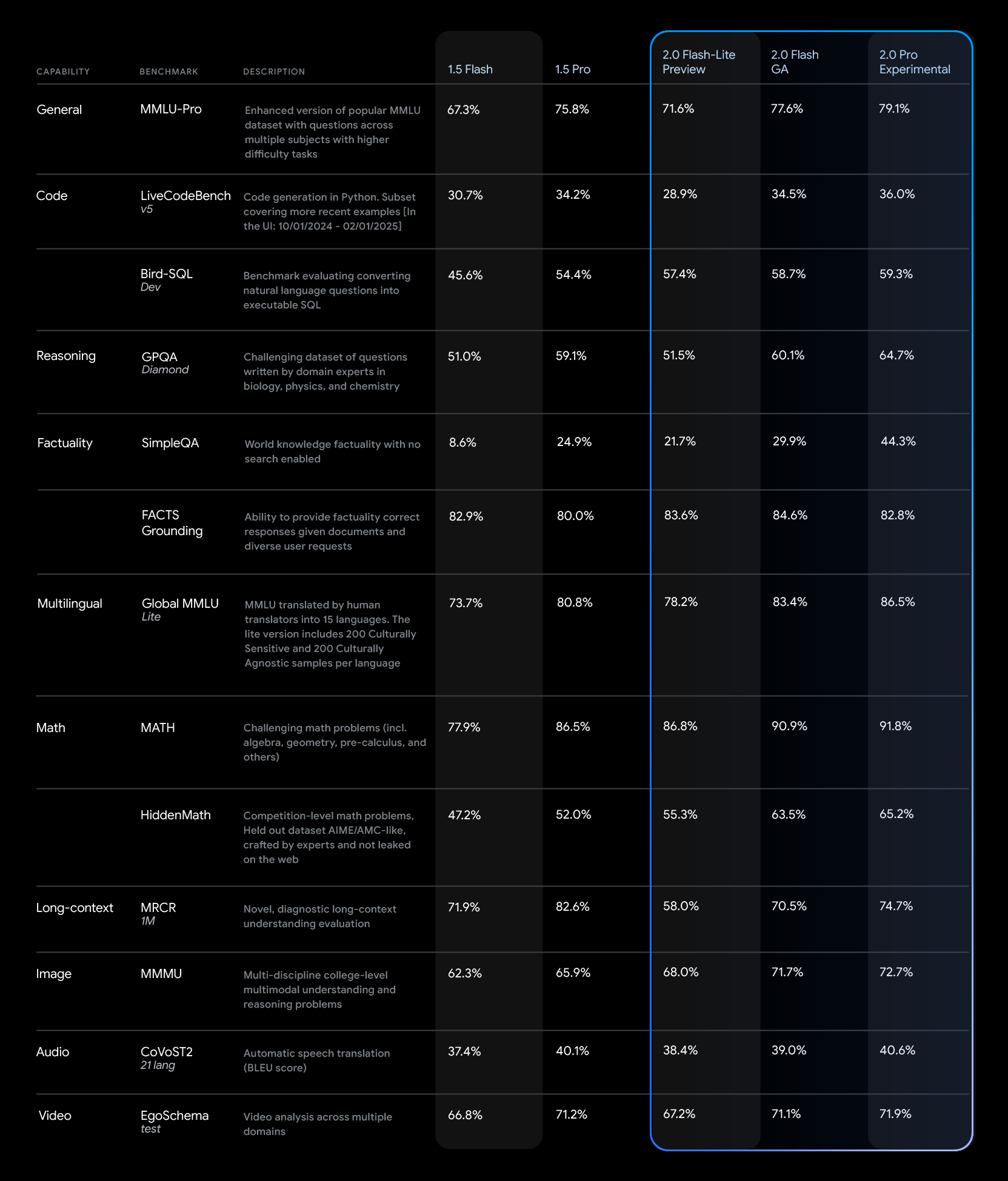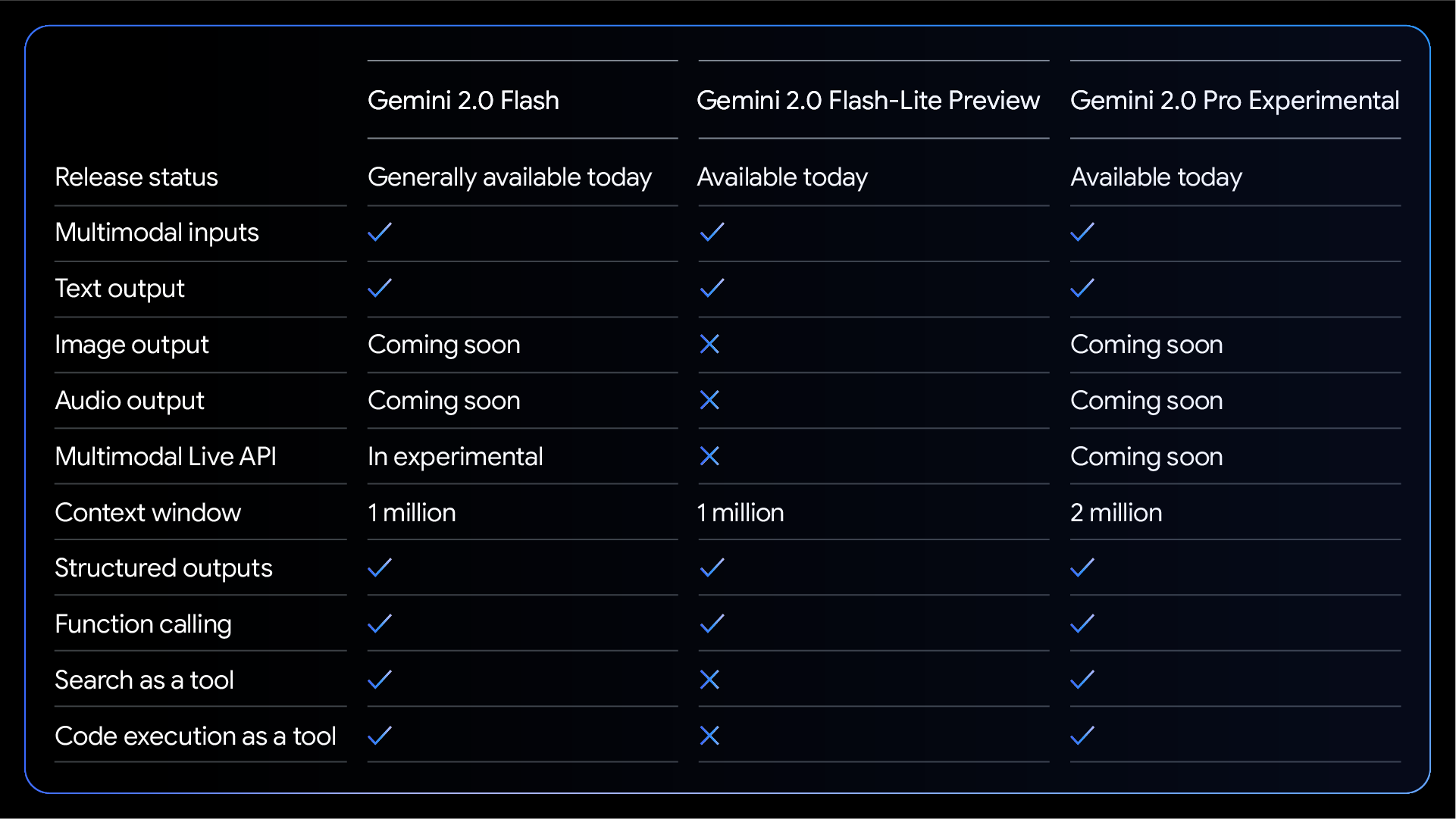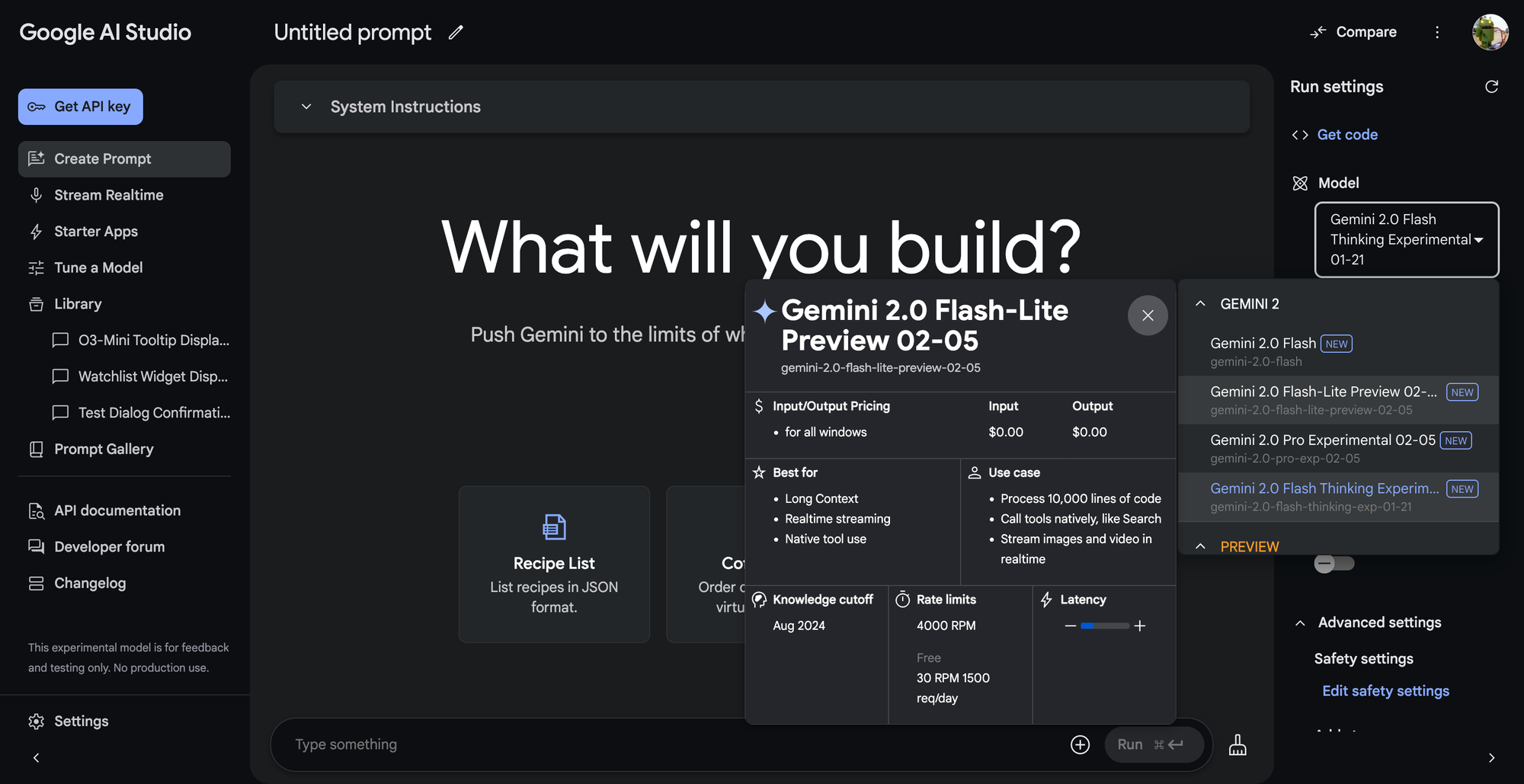Google DeepMind has announced the general release of its Gemini 2.0 AI model family, marking a significant update to its artificial intelligence offerings. The new suite includes three primary models: Gemini 2.0 Flash, Gemini 2.0 Pro Experimental, and Gemini 2.0 Flash-Lite, each tailored to different user needs and applications.
Gemini 2.0 Flash is the best value prop of any LLM, it’s time to build! pic.twitter.com/xYhAsCvlND
— Logan Kilpatrick (@OfficialLoganK) February 5, 2025
The Gemini 2.0 Flash model, initially introduced at Google I/O 2024, is now widely available through platforms like Google AI Studio and Vertex AI. This model is optimized for high-frequency and high-volume tasks, featuring a context window of 1 million tokens and multimodal reasoning capabilities. It is designed for developers building scalable production applications and is integrated into the Gemini app for desktop and mobile users. Future updates are expected to expand its capabilities to include image generation and text-to-speech functionalities.
The Gemini 2.0 Pro Experimental model is positioned as the most advanced in the lineup, with a focus on coding performance and handling complex prompts. It features a 2-million-token context window—the largest in the Gemini family—allowing it to process extensive information efficiently. This model also includes tool-calling capabilities, such as Google Search integration and code execution, making it particularly useful for developers handling sophisticated projects. It is available in Google AI Studio, Vertex AI, and the Gemini app for Advanced subscribers.
The Gemini 2.0 Flash-Lite model serves as a cost-effective option, offering improved performance over its predecessor (Gemini 1.5 Flash) while maintaining affordability. With a context window of 1 million tokens and multimodal input support, it is suitable for scalable applications requiring lower costs without compromising quality.

All models incorporate safety measures like reinforcement learning and automated red teaming to address risks such as indirect prompt injection attacks. These updates align with Google's broader strategy of advancing agentic AI—models capable of executing multi-step tasks autonomously under user oversight.

This release reflects Google's efforts to remain competitive in the AI space against rivals like OpenAI, Microsoft, and emerging players such as DeepSeek. By expanding access to its most powerful models through both developer platforms and consumer-facing apps, Google aims to cater to diverse use cases ranging from brainstorming and problem-solving to large-scale enterprise applications.






